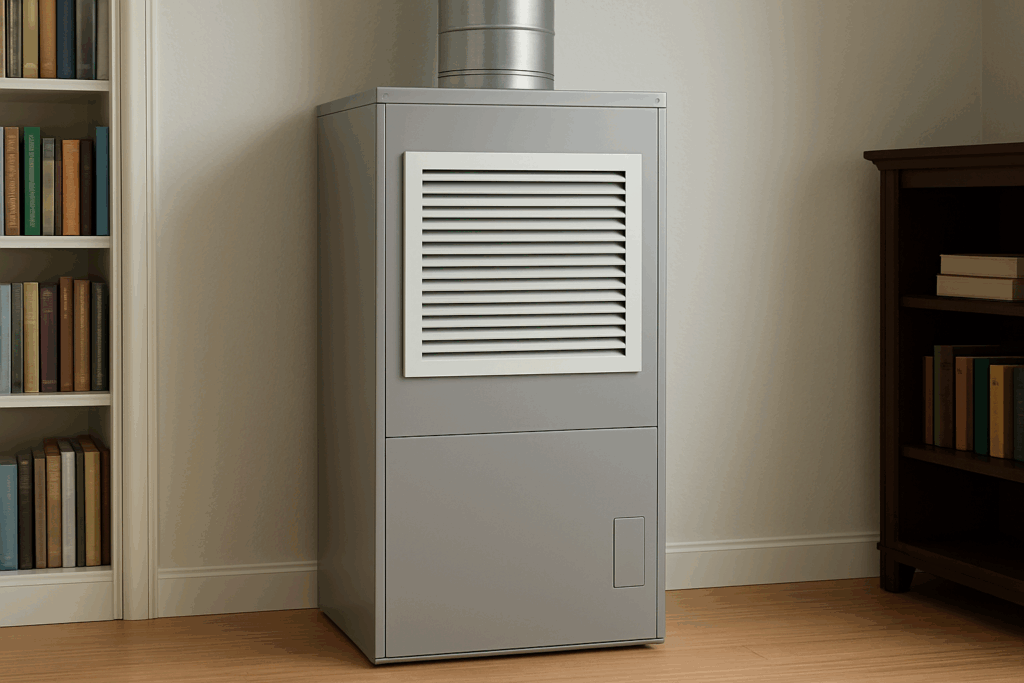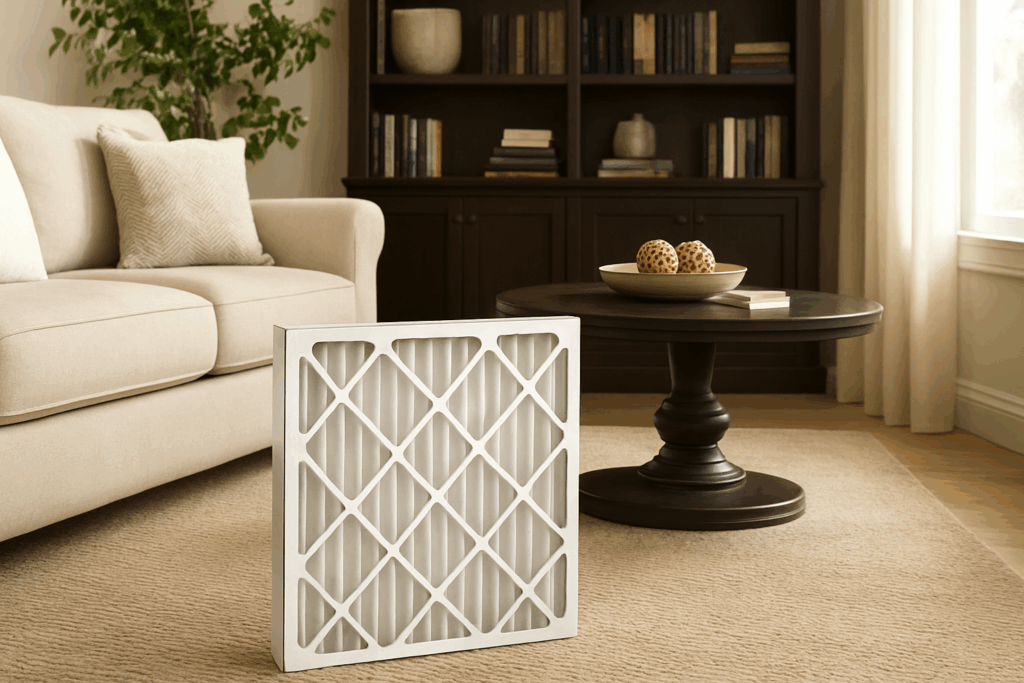Indoor air quality is one of the most overlooked factors in maintaining a healthy home. Whether it’s dust, pollen, mold spores, or pet dander, the air inside often contains more pollutants than the air outside. The good news? A reliable HVAC filter can dramatically improve the air you breathe, making your home safer, fresher, and more comfortable.
In this guide, you’ll learn:
- Why HVAC filters are essential for home health
- The key factors to consider when buying a filter
- A detailed breakdown of the 9 best HVAC filters available
- Replacement and maintenance tips to keep your system efficient
- Common mistakes to avoid
Let’s dive into the world of HVAC filters and see how the right choice can transform your living environment.
Why HVAC Filters Matter for Home Health
HVAC filters do much more than keep dust away. Just like Anti-Slip Mats reduce accidents, HEPA filters reduce airborne risks.
Key Benefits of High-Quality HVAC Filters:
- ✅ Trap dust, pollen, mold spores, and pet hair
- ✅ Improve indoor air quality for allergy and asthma sufferers
- ✅ Protect HVAC systems from clogging and costly repairs
- ✅ Maintain efficient airflow, reducing energy bills
- ✅ Extend the lifespan of your HVAC system
Without a proper filter, your HVAC system works harder, consumes more energy, and still fails to provide clean, breathable air.
Key Factors to Consider Before Buying an HVAC Filter
Not all filters are created equal. Choosing the right one depends on your home’s needs.
1. MERV Rating (Minimum Efficiency Reporting Value)
- Scale ranges from 1 to 20.
- Higher MERV = better filtration.
- Residential sweet spot: MERV 8–13 (effective without restricting airflow).
2. Filter Size
- Always check your HVAC system’s manual.
- A wrong size can reduce performance and damage the unit.
3. Filter Material
- Fiberglass: Basic, cheap, but less effective.
- Pleated: Better for allergens and dust.
- HEPA: High-end option for maximum filtration.
4. Maintenance & Lifespan
- Disposable: Replace every 1–3 months.
- Washable: Eco-friendly, but require frequent cleaning.
5. Budget
- Initial cost vs. long-term value matters.
- Washable filters save money over years, while disposable ones need regular replacement.
📊 Comparison Table: Filter Types vs. Features
| Filter Type | Efficiency | Lifespan | Best For | Cost Range |
|---|---|---|---|---|
| Fiberglass | Low | 30 days | Basic dust protection | $ |
| Pleated | Medium-High | 3–6 months | Allergies, dust, pets | $$ |
| HEPA | Very High | 6–12 months | Allergies, asthma relief | $$$ |
| Washable/Reusable | Medium | Up to 5 yrs | Eco-friendly, long-term | $$ |

The 9 Best HVAC Filters for a Healthier, Fresher Home
1. Filtrete Healthy Living 2200 MPR
- MERV Rating: 13
- Excellent for trapping tiny particles like smoke and bacteria.
- Long-lasting pleated design.
- Best for households with pets or allergy sufferers.
2. Honeywell Elite Allergen Air Filter
- High allergen protection, ideal for families.
- Captures microscopic particles such as mold spores and bacteria.
- Maintains strong airflow for energy efficiency.
3. Nordic Pure MERV 12 Pleated Filter
- Affordable without sacrificing quality.
- Great for medium allergy protection.
- Pleated design traps more dust than fiberglass.
4. Lennox Healthy Climate Carbon Clean 16
- Combines HEPA-level filtration with carbon technology.
- Excellent at removing odors in addition to allergens.
- Premium choice for large homes or sensitive individuals.
5. Aerostar Pleated Air Filter
- Budget-friendly and easy to find.
- Suitable for general dust and pollen removal.
- Works well for households without severe allergies.
6. Rheem Preferred Allergen Defense
- Balanced filtration and airflow.
- MERV 11 rating captures common allergens.
- Affordable option with solid performance.
7. 3M Filtrete Odor Reduction Filter
- Activated carbon layer reduces odors from cooking, pets, and smoke.
- Perfect for urban apartments or households with pets.
- Helps freshen the air in addition to filtering allergens.
8. True HEPA 14 Filter
- Medical-grade filtration for the cleanest air possible.
- Eliminates bacteria, viruses, and ultrafine dust.
- Ideal for allergy and asthma sufferers.
9. Washable Electrostatic Filter
- Eco-friendly option with reusable design.
- Cost-effective in the long run (lasts up to 5 years).
- Requires regular cleaning to maintain performance.
How Often Should You Replace HVAC Filters?
Filter replacement is critical for efficiency and health.
- 🏠 Standard homes: Replace every 60–90 days.
- 🐕 Homes with pets: Every 30–45 days.
- 🌻 Allergy sufferers: Every 30 days.
- 🏖️ Vacation homes: Every 6 months.
Pro Tip: Check your filter monthly. If it looks dirty, replace it even before the recommended time.

Common Mistakes to Avoid with HVAC Filters
Even the best filter won’t work properly if misused.
- ❌ Choosing the wrong size → reduces airflow and efficiency.
- ❌ Forgetting to replace filters → leads to system damage.
- ❌ Buying the cheapest filter → sacrifices air quality.
- ❌ Not cleaning washable filters → bacteria buildup.
Cost vs. Value of HVAC Filters
Not sure which option saves you more in the long run? Here’s a cost comparison:
📊 Cost Comparison Table
| Filter Type | Average Cost | Replacement Frequency | Yearly Cost |
|---|---|---|---|
| Fiberglass | $2–$5 | Monthly | $24–$60 |
| Pleated | $10–$25 | 3–6 months | $40–$100 |
| HEPA | $50–$100 | 6–12 months | $50–$200 |
| Washable/Reusable | $50–$100 | 5 years | $10–$20/year |
Takeaway: Pleated and washable filters offer the best balance of cost and performance for most homes.
Conclusion
Investing in the right HVAC filter is one of the easiest yet most effective ways to improve your home environment. From reducing allergens to boosting system efficiency, the right filter can transform indoor air quality.
Key Takeaways:
- Pleated filters are the best balance for most homes.
- HEPA filters are ideal for allergy sufferers.
- Washable filters save money long-term.
- Regular replacement is essential to keep your HVAC system running smoothly.
By choosing one of these 9 best HVAC filters, you’ll enjoy fresher, cleaner air while ensuring your HVAC system lasts longer and runs more efficiently.
FAQs about HVAC Filters
Q1: What is the best HVAC filter for allergies?
👉 HEPA filters or high-MERV pleated filters.
Q2: Do HVAC filters reduce odors?
👉 Yes, carbon-activated filters are designed for odor control.
Q3: Can I wash and reuse disposable filters?
👉 No, only washable/electrostatic filters are reusable.
Q4: How do I know when to replace my filter?
👉 If airflow is weak, energy bills rise, or the filter looks dirty, it’s time.
Q5: Do higher MERV ratings always mean better?
👉 Not always. Too high can restrict airflow. Choose MERV 8–13 for most homes.